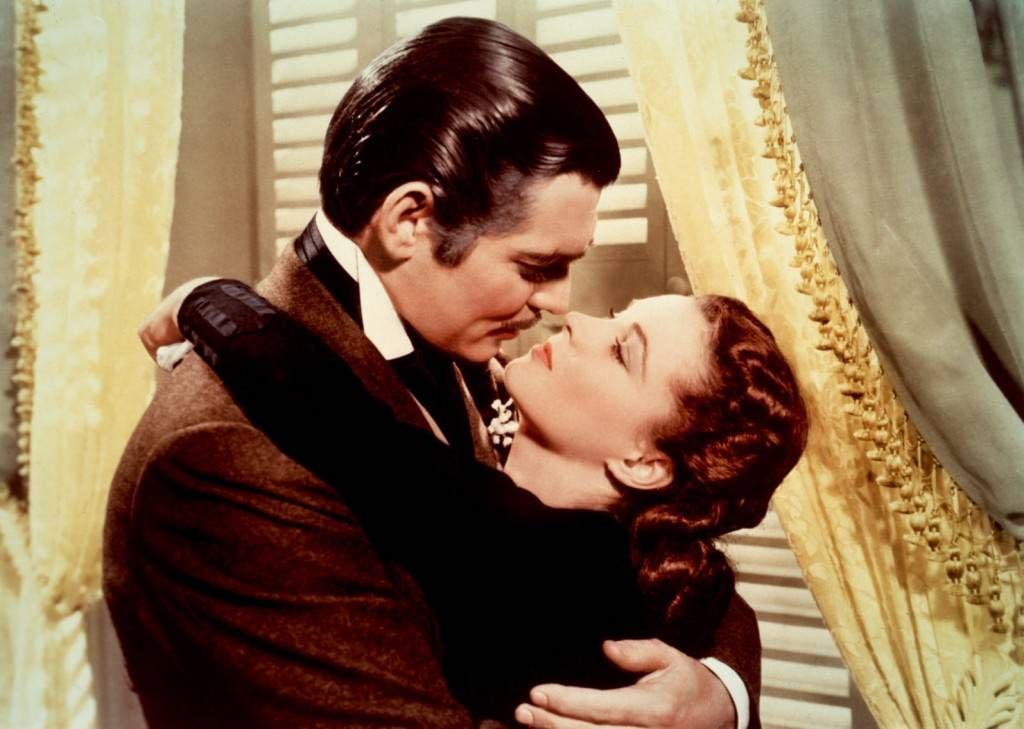
I Couldn’t Finish GONE WITH THE WIND Because it Was So Racist
I’ve been on a childhood favorites kick (recently talked about rereading Little House on the Prairie for Book Riot) and after zooming through A Tree Grows in Brooklyn and A Wrinkle in Time I was ready for my middle school favorite Gone With the Wind.
I LOVED this book growing up. I learned so much about storytelling from this story: what makes a scene great, a setting worthy of narrative, a relationship a romance for the ages. I use the tropes of this story as shorthand constantly: when a man seems sexy but is actually boring he is an Ashley Wilkes, when I have to hustle hard to get the job done, I’m making dresses out of curtains. As a kid, I was in Gone With the Wind to WIN Gone With the Wind. I was so excited to read this book as an adult.
And then I couldn’t do it. I guess I blocked out the slave stuff in my memories of the book, or I was a really racist child and registered the injustice but wasn’t sufficiently nauseated. This time around, I felt queasy every time there was slavery in a scene. Margaret Mitchell skewers sexism in this novel with her rapier wit, every observation contains subtle (and sometimes overt) criticism. Yet there is no skewering of slavery (at least not as far as I reread/remembered). It’s just an accepted institution. It’s just background for white romance, white tragedy, white lessons learned. I can’t remember the last time I felt so queasy reading.
I’m not black. I can’t speak to the experience of being black and reading this book and seeing the painful history of your people transformed into pretty scenery. Still, I tried to imagine an analagous situation for myself. What if there was a classic novel, let’s call it Edelweiss, a sweeping romance set against the backdrop of the Holocaust, that followed the story of Ilse Koch, a headstrong German girl caught in a love triangle between a high-ranking Nazi official and a bottom-rung SS officer. And Edelweiss is a LOT of girls’ favorite romance growing up. “How could Ilse ever love Herman Goebbels when Franz Heydrich is such a hot, banter-y BAD BOY for basically all 800 pages of the novel?” And there was a movie made out of this book in 1949 that won ALL THE ACADEMY AWARDS. And all throughout Edelweiss Jews are being killed (and gay people and Communists and dissidents). This is always in the background. Always. The most romantic scene in the book is when Franz confesses his love for Ilse at a picnic in a flowery field RIGHT NEXT TO AUSCHWITZ. There’s a poetic description of the crematorium smokestacks in the background. There is nothing critical about the Holocaust in the novel. Genocide is treated as backdrop.
This would NEVER be stood for. NEVER. Except I think that’s exactly what we stand for when we defend Gone With the Wind. And as much as I usually love being up on my soapbox, I’m not having much fun climbing up here for this rant. I’m not having fun with this. I’m too sick and sad about the subject matter.
Maybe you’ll tell me that I can’t judge GWTW so harshly by modern standards, that I have to accept and appreciate the work as a relic. And a part of me just wants to separate my favorite parts of this novel from the parts that disgust me. But I can’t pick and choose like that. It’s all part and parcel. I accept the book or I reject it. So I’m rejecting it.
In Jonathan Safran Foer’s pro-vegetarianism Eating Animals, he talks about how hard it is for people to give up meat because of all the nostalgia associated with Thanksgiving dinner, In-N-Out pit stops on road trips, etc. His solution to the problem of how to give up the meals that are good for our nostalgia but bad for animals? Make new memories. Find new things to be nostalgic about. I think this thought can be directly applied to stories we once loved but have found we have ethically outgrown. I need to find great scenes, great relationships, great settings attached to books I can stand by one thousand percent. It’s hard to say goodbye to old favorites. But it’s harder still to know that the time has come to put away childish things… and then not put those childish things away.
Has anyone else had this experience with GWTW (or another old-timer novel)? What do you do when your childhood favorites don’t align with your grown-up ethics?
____________________________
Sign up for our newsletter to have the best of Book Riot delivered straight to your inbox every week. No spam. We promise.
To keep up with Book Riot on a daily basis, follow us on Twitter, like us on Facebook, , and subscribe to the Book Riot podcast in iTunes or via RSS. So much bookish goodness–all day, every day.











